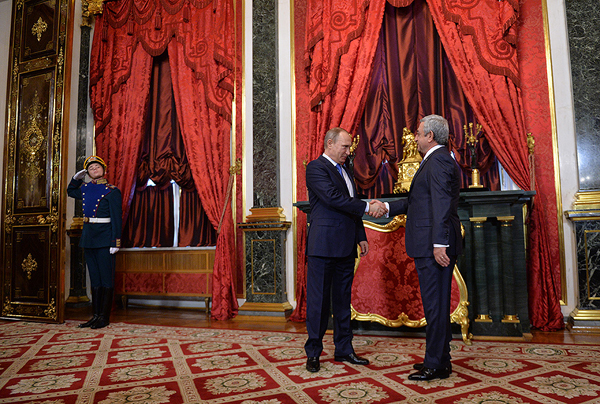We are not doomed constantly to think of Russia’s interests by pushing the interests of Armenia and the citizen of Armenia to the second plan
Last year, in November, Gunnar Wiegand, the European External Action Service (EEAS) Director for Russia, Eastern Partnership, Central Asia, Regional Cooperation and OSCE, visited Yerevan to attend the Armenia-EU Cooperation Committee regular meeting. That day, he made a remarkable statement, “I do not think that Russia would intervene in the Armenia-EU talks because Armenia is holding consultations with its EaEU partners. Kazakhstan did the same, with whom we negotiate to sign an agreement. Naturally, the countries are obliged to take into account the commitments that have already been undertaken. We are in an either-or situation.”
In the fall, the EU External Relations Council authorized the EU Commission to launch negotiations on a new framework agreement with Armenia. The negotiations are already underway. Last week, Strasbourg hosted the regular meeting of the EU-Armenia Parliamentary Cooperation Committee, which adopted the final statement and the recommendations. Debates are underway about the perspectives of Armenia-EU relations, the new legal document regulating these relations, regional security, the Nagorno-Karabakh conflict and the settlement of Armenia-Turkey relations.
Read also
The final document of the EU-Armenia Parliamentary Cooperation Committee’s 16th session welcomed the kick off the EU-Armenia talks on December 7, 2015, on the high level, meaning the new comprehensive framework agreement, which will include political, economic and sectoral cooperation. The document referred to the work conducted during the negotiations of the Association Agreement (DCFTA), being sure that the technical outcome of these negotiations, which then was in reserve for referring to it in the future, will facilitate the speedy completion of currently resumed EU-Armenia negotiations. It is expected to see a clearly enshrined commitment in the new agreement for the rule of law, democracy and human rights, which should be the cornerstone of the agreement.
The document also noted that the EU support over the years for the effective implementation of the reforms in Armenia and the development of institutional capacities has served its purpose, and then welcomed the adoption of the new project with the assistance of 30 million Euro by the EU on December 16, 2015, which was is aimed at improving further efforts for the expansion of further efforts in the participation of civil society in democratic decision-making process, financial management and working conditions. Our society must realize that the new level of relations with the European Union suggests is an entire continuous process. Everything depends on what extend the Armenian authorities are sincere in the application of EU requirements in Armenia and practically making our country as such that is suggested by the universal European values.
This must be realized with the understanding that Armenian connection with the EU is a consistent process, which will bring benefit to the country’s economy to some extent, European standards will be reinforced in Armenia on human rights and humanitarian sector rather than with the expectation of how much financial support we will receive from the EU. Today, again opinions are voiced by Russia about impeding the adoption of the new legal document that regulates the Armenia-EU relations. The talks were more intensified after Russia banned the import of a number of agricultural products from Armenia to Russia since January 20, including dairy products and meat. The banning import was introduced by the agricultural control service – “Rosselkhoznadzor”, reasoning the situation in Armenia regarding the foot and mouth disease.
It is clear that “Rosselkhoznadzor” is a Russia political truncheon for a long time, it is regularly put to action in case of the Russian authorities do not like any phenomenon as a tool of “punitive actions” against this-or-that country. But Armenia has no future if it endlessly continues raising the question of how any move driven by the interests of our state will be perceived and adopted by the Russian authorities … This is a stalemate situation in which we have appeared, of course, by our fault too, but even in this situation, we are not doomed always to think about the interests of Russia and pushing the interests of Armenia and the citizen of Armenia to the second plan. The RA authorities, the political elite must be accustomed not to get into complexity when negotiating and agreeing with Moscow. Otherwise, we will not have any development prospect. Russia is going to be a hampering and preventing state for us as long as we allow it with our weakness and perceive Russia as such. Yes, today’s Russia is a leading Russia with imperialistic approaches, but even that, it is not a reason for our negotiators to feel excessively complex and depressed when talking with the Russian side.
Emma GABRIELYAN,
“Aravot” daily























































